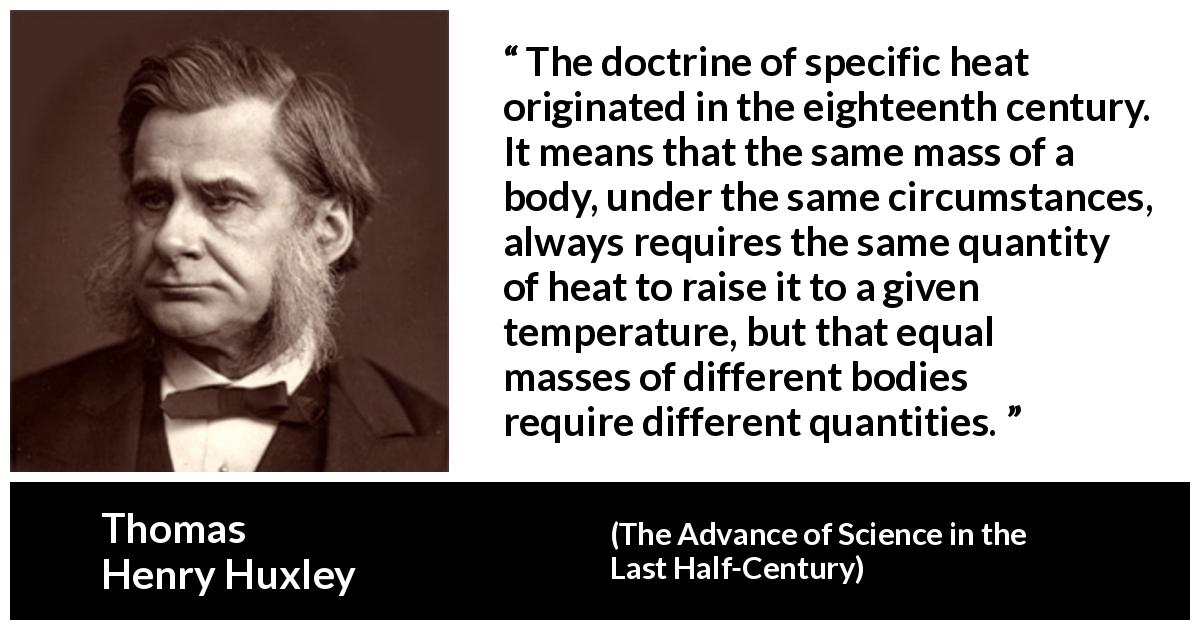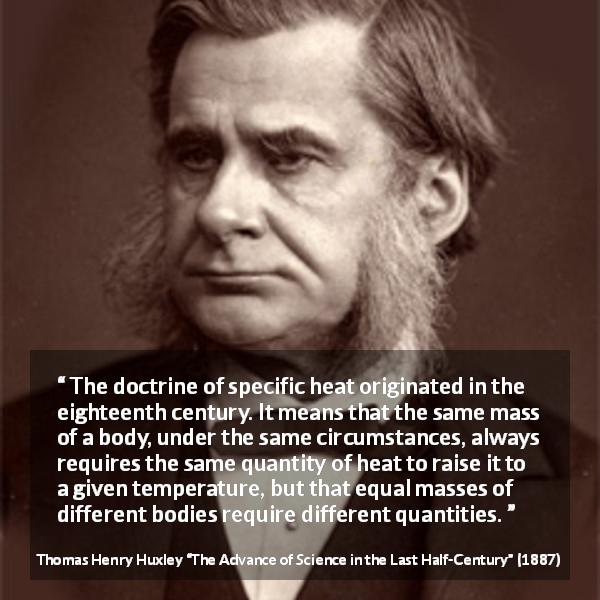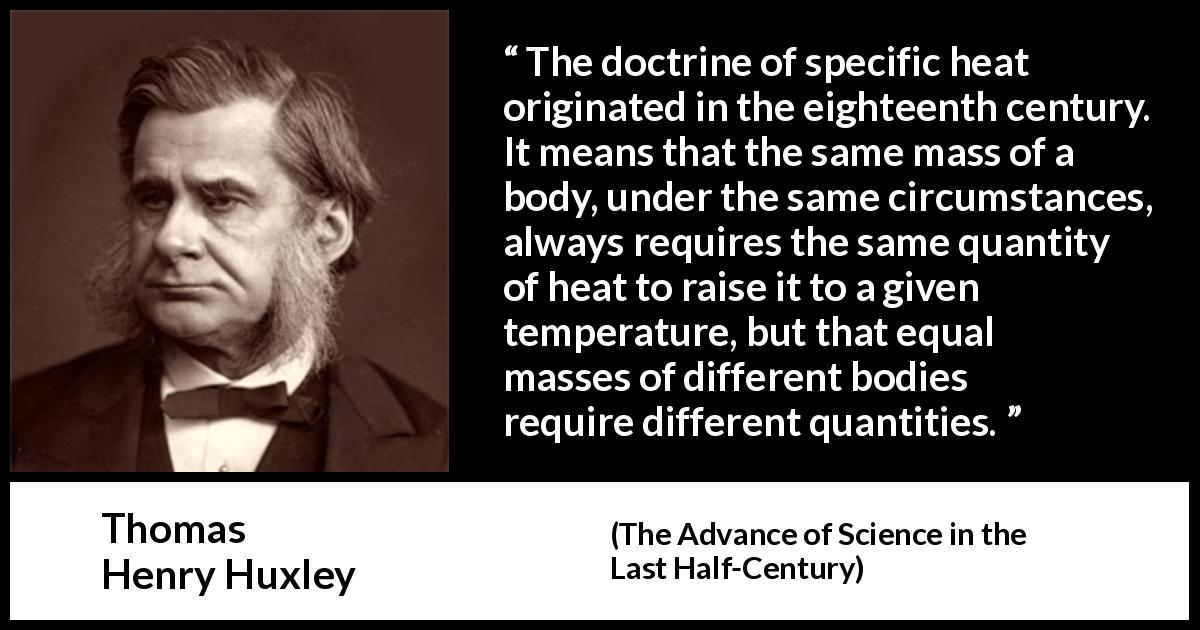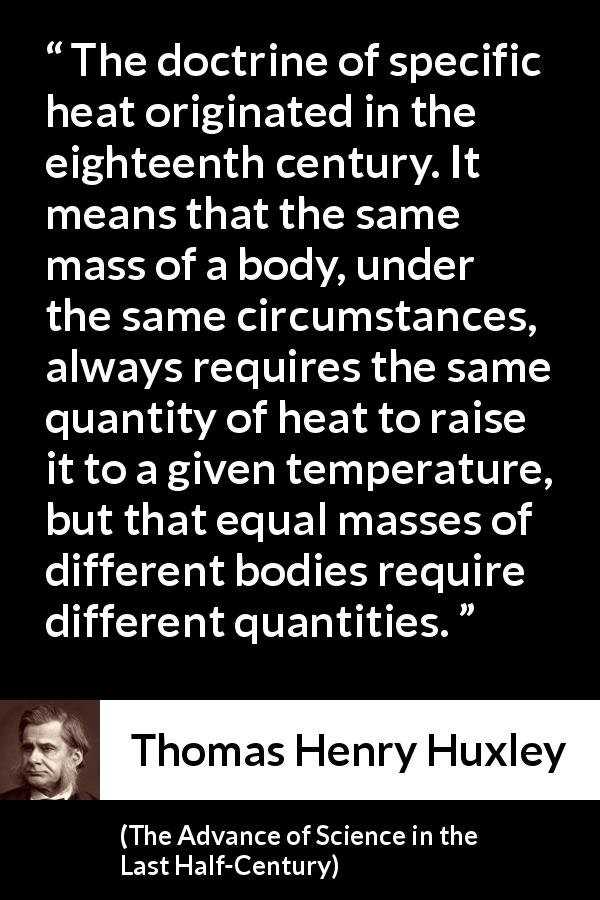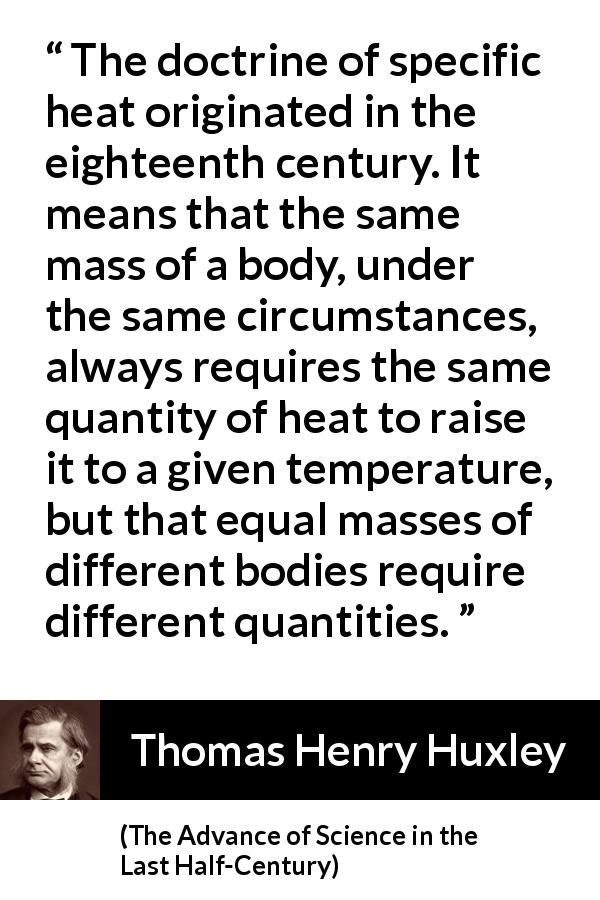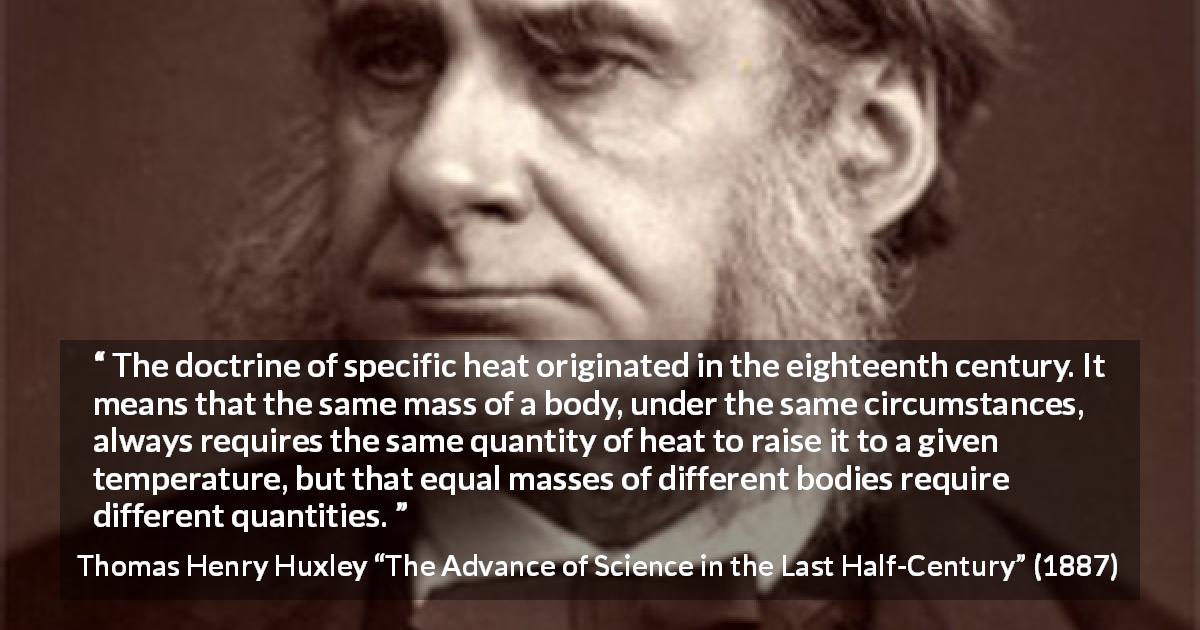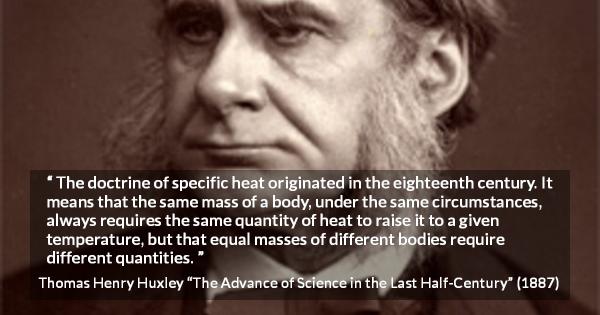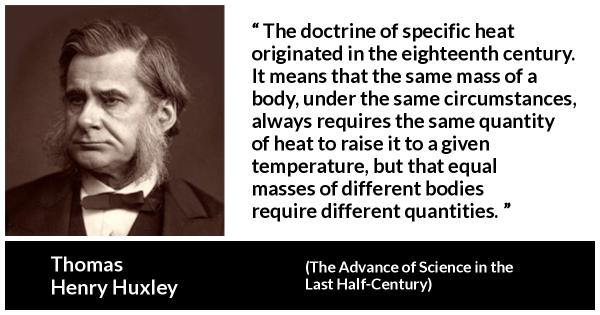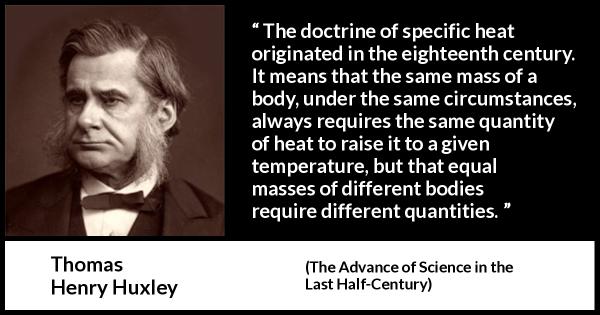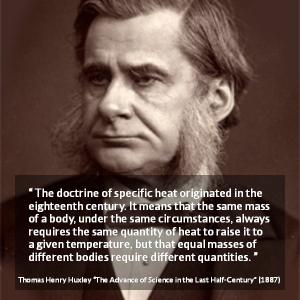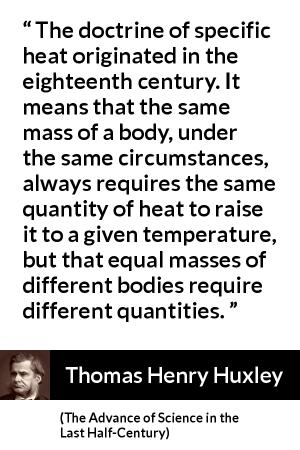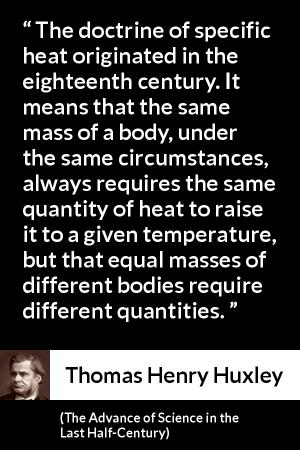“ The doctrine of specific heat originated in the eighteenth century. It means that the same mass of a body, under the same circumstances, always requires the same quantity of heat to raise it to a given temperature, but that equal masses of different bodies require different quantities. ”
Thomas Henry Huxley, The Advance of Science in the Last Half-Century (1887). copy citation
| Author | Thomas Henry Huxley |
|---|---|
| Source | The Advance of Science in the Last Half-Century |
| Topic | heat mass |
| Date | 1887 |
| Language | English |
| Reference | |
| Note | |
| Weblink | http://www.gutenberg.org/files/15253/15253-h/15253-h.htm |
Context
“Just as a man is the unit of sociology, without reference to the actual fact of his divisibility, so such a minute mass is the unit of physico-chemical science—that smallest material particle which under any given circumstances acts as a whole.[ F]
The doctrine of specific heat originated in the eighteenth century. It means that the same mass of a body, under the same circumstances, always requires the same quantity of heat to raise it to a given temperature, but that equal masses of different bodies require different quantities. Ultimately, it was found that the quantities of heat required to raise equal masses of the more perfect gases, through equal ranges of temperature, were inversely proportional to their combining weights.” source
The doctrine of specific heat originated in the eighteenth century. It means that the same mass of a body, under the same circumstances, always requires the same quantity of heat to raise it to a given temperature, but that equal masses of different bodies require different quantities. Ultimately, it was found that the quantities of heat required to raise equal masses of the more perfect gases, through equal ranges of temperature, were inversely proportional to their combining weights.” source
